Original source: Filecoin Network
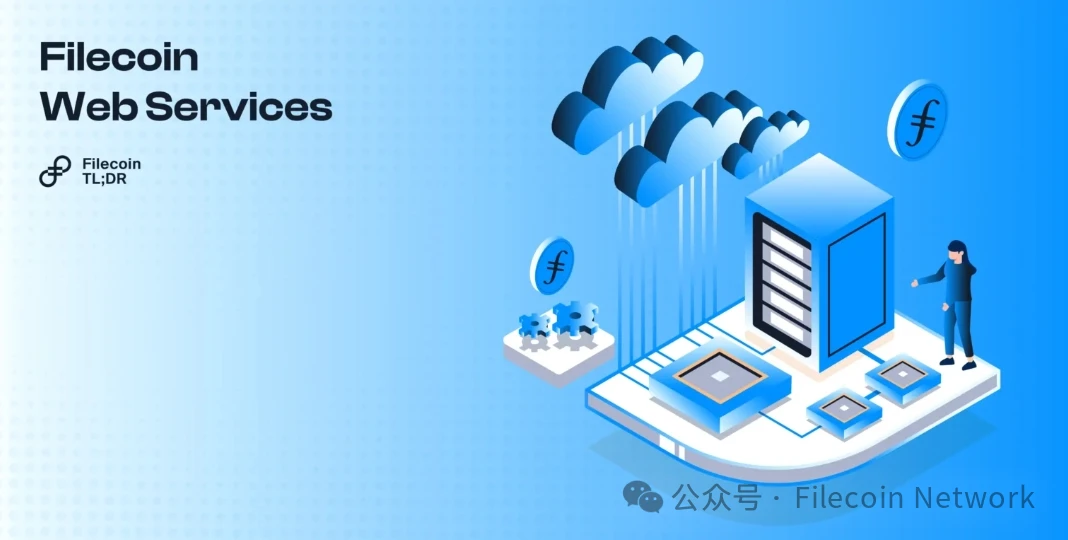
At the recent Filecoin Developer Summit (FDS), Nicola Greco from FilOz introduced the development vision of Filecoin decentralized cloud services: Filecoin Network Services (hereinafter referred to as FWS). FWS aims to provide a framework for deploying composable cloud services, allowing new protocols to be launched into a shared product market where all products can be combined with each other.
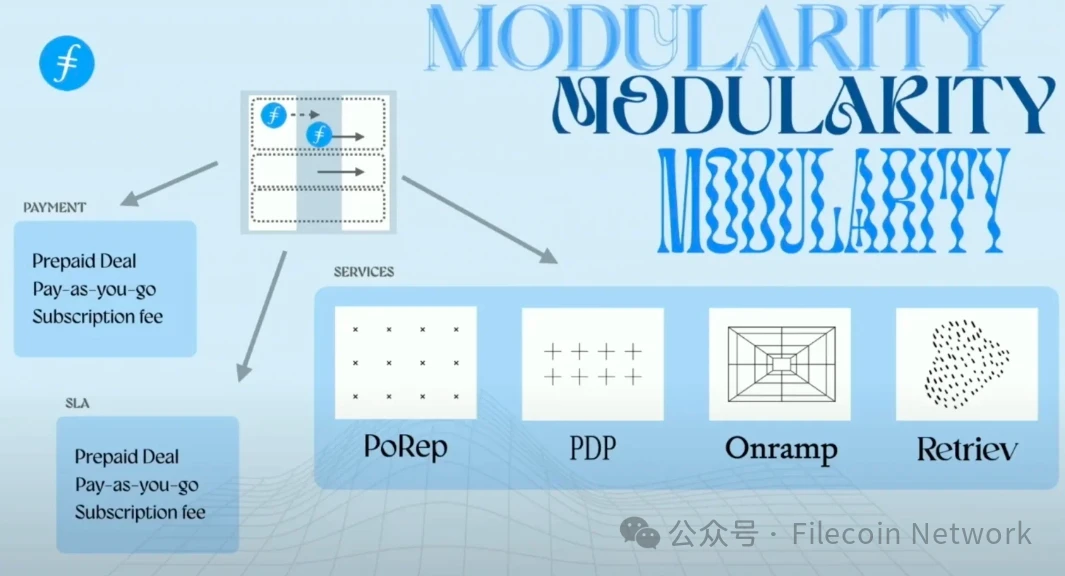
Source: Filecoin Network Services - Verifiable Cloud Service Ecosystem, by Nicola G (https://www.youtube.com/watch?v=Yz5-9oP9d0Q)
Beyond Proof of Replication: Expanding Filecoin’s Capabilities
To understand FWS, we first need to review how existing service products exist in the Filecoin network.
The core storage product, Proof of Replication (PoRep), allows a storage provider to use proof of uniquely encoded data to show that it still owns a specific block of data. Filecoin uses PoRep for storage and consensus, which requires higher security parameters, so Filecoins base storage product is similar to cold storage. This makes Filecoins base product ideal for datasets that require strong guarantees on the uniqueness and existence of a dataset, but can accept slower access times.
Additionally, since Filecoin was launched before FVM, most of the on-chain tools (such as establishing and maintaining storage transactions, enabling payments, etc.) exist as system actors or non-programmable functions on the network. This means that many of these functions are built to support the original storage functions on the network, but any evolution requires a full network upgrade to modify or support new functions.
However, as more storage on-ramps began to build storage solutions for users, it became clear that more storage products were needed beyond Filecoin’s basic product. As a result, proposals were made to run new proof types (such as proof of data ownership) on the Filecoin network, allowing more use cases to be natively supported.
When designing these new products built on Filecoin, it became clear that many of the new proof products would require common versions of on-chain tools that exist as “system actors,” such as payment rails. Rather than having many systems evolve their own architectures independently (and risk losing composability), a new proposal was proposed to build modular, composable systems through FWS.
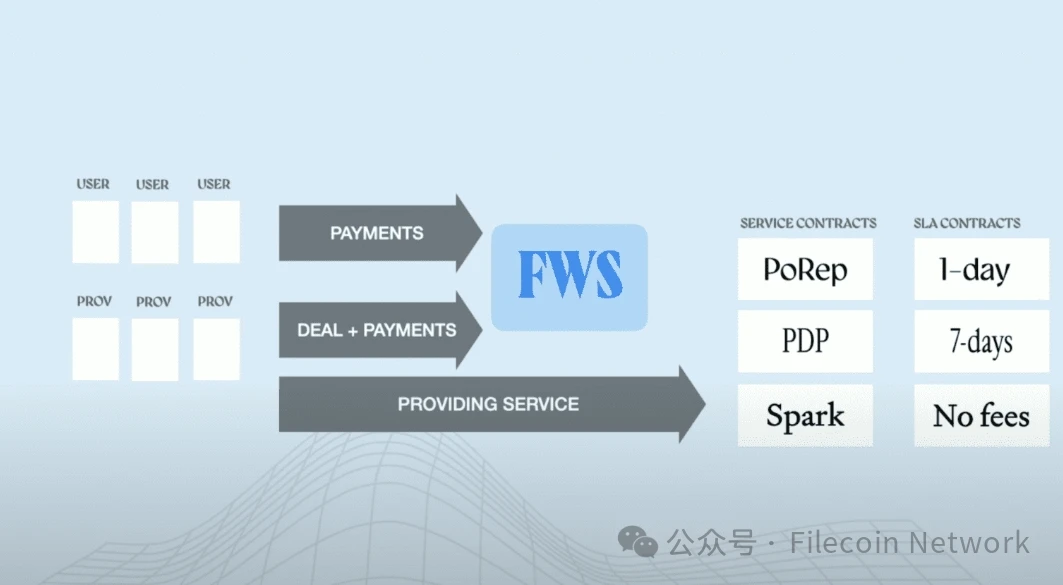
Source: Filecoin Network Services - Verifiable Cloud Service Ecosystem, by Nicola G (https://www.youtube.com/watch?v=Yz5-9oP9d0Q)
Introduction to Filecoin Network Services: A Modular Approach to Cloud Services
At the heart of Grecos vision is the concept of modularity and reuse. If each new service had to build the entire protocol from scratch, they would need to develop everything from transaction management to hosting and SLA enforcement, which would result in a high barrier to entry for new services. FWS proposes a unified protocol to standardize these components, allowing developers to focus on building specific services rather than recreating the entire stack.
FWS will act as an opinionated thin layer responsible for managing payments, collateral, transaction structures, and SLA enforcement for various services. This standardization will enable seamless integration of new services, whether they are storage-related services (such as PDP and retrieval services) or completely new services (such as zk-SNARK proofs or AI-based computing markets). By providing a common framework, FWS will reduce complexity, reduce development costs, and increase the speed of development built within the Filecoin ecosystem.
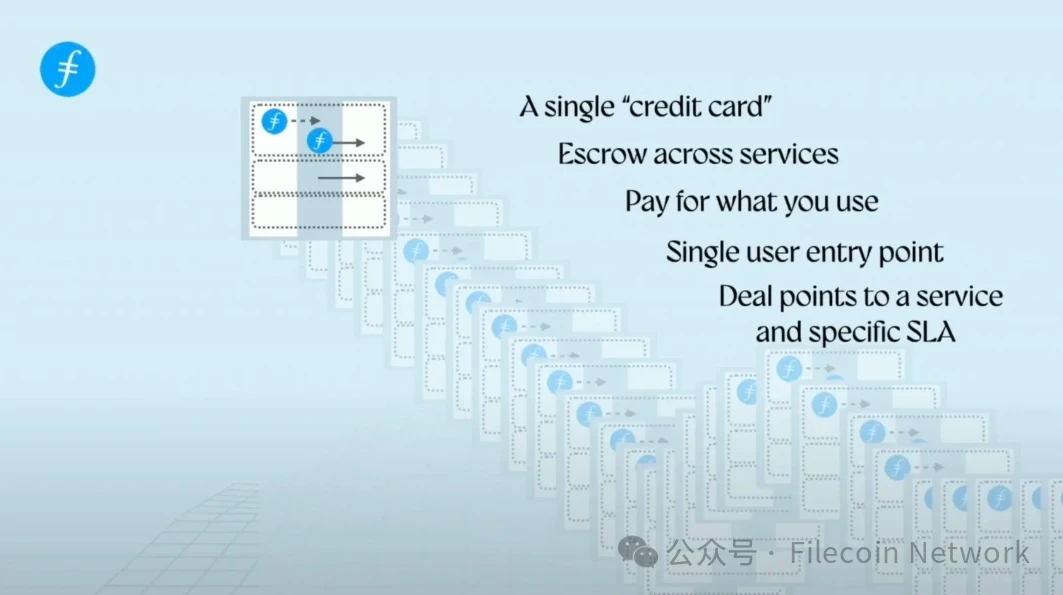
Source: Filecoin Network Services - Verifiable Cloud Service Ecosystem, by Nicola G (https://www.youtube.com/watch?v=Yz5-9oP9d0Q)
The power of a unified market: improving efficiency and accessibility
One of the main benefits of FWS is that it simplifies the user experience. Without FWS, users would need to lock their tokens in multiple smart contracts to access different services, which would lead to inefficiencies in collateral management and prepayments, and increase user costs. FWS envisions a single entry point where users can decide their own payment method - prepay or pay as you go - and the same method can be used for multiple services. This model is exactly the same as the convenience of traditional cloud services, where users only need to provide a payment method and pay regularly.
In addition, by consolidating financial management into a single contract, FWS will improve collateral efficiency and reduce the overhead of managing multiple service contracts. This will also allow one service to be used to implement credit in other services, allowing credit records to be established across different protocols. This approach not only simplifies the user experience, but also enhances the overall liquidity and flexibility of the Filecoin ecosystem.
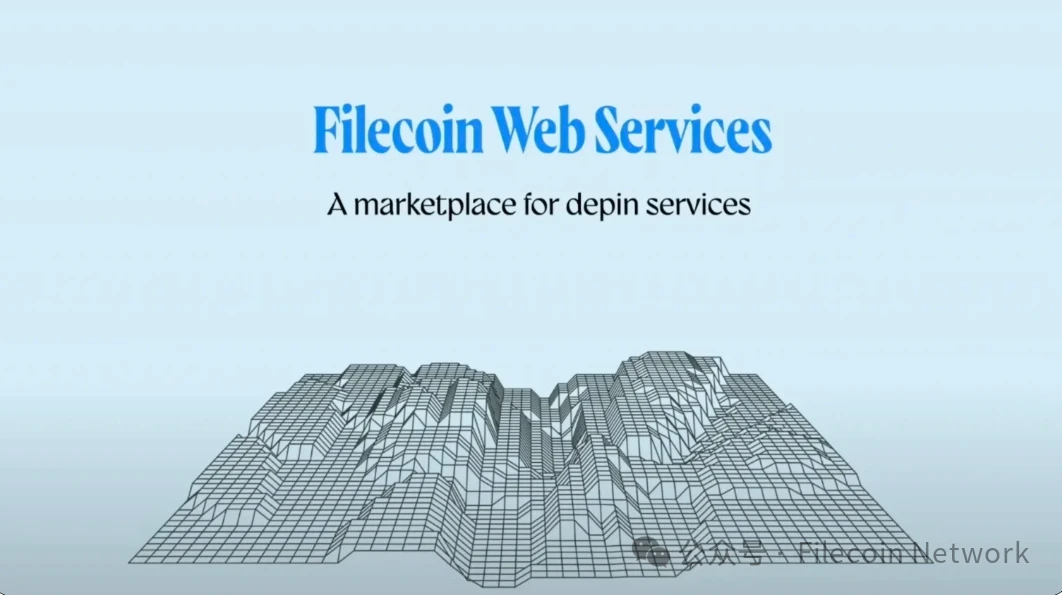
Source: Filecoin Network Services - Verifiable Cloud Service Ecosystem, by Nicola G (https://www.youtube.com/watch?v=Yz5-9oP9d0Q)
Future Vision: FWS as a distribution layer for decentralized services
Looking ahead, Greco sees FWS as not only a tool to enhance Filecoins storage capabilities, but also a broader distribution layer for decentralized services. As the ecosystem continues to develop, FWS can facilitate the integration of multiple networks and protocols to create a cohesive market for storage, computing, bandwidth, and other services. This will drive Filecoin to become a vibrant, interconnected ecological center, promoting innovation and adoption of decentralized networks. By providing a market for services such as zero-knowledge proof generation and decentralized computing, FWS can build Filecoin into a leading platform for decentralized networks, supporting applications beyond storage.
Learn more about FWS by watching Nicola Greco’s full keynote on Youtube.
Many thanks to Jonathan Victor for reviewing this article and providing valuable comments.
Disclaimer: The above content is for informational purposes only and does not constitute investment, financial, legal or other advice, nor does it represent an endorsement, offer or recommendation to use any specific service, product or application.










